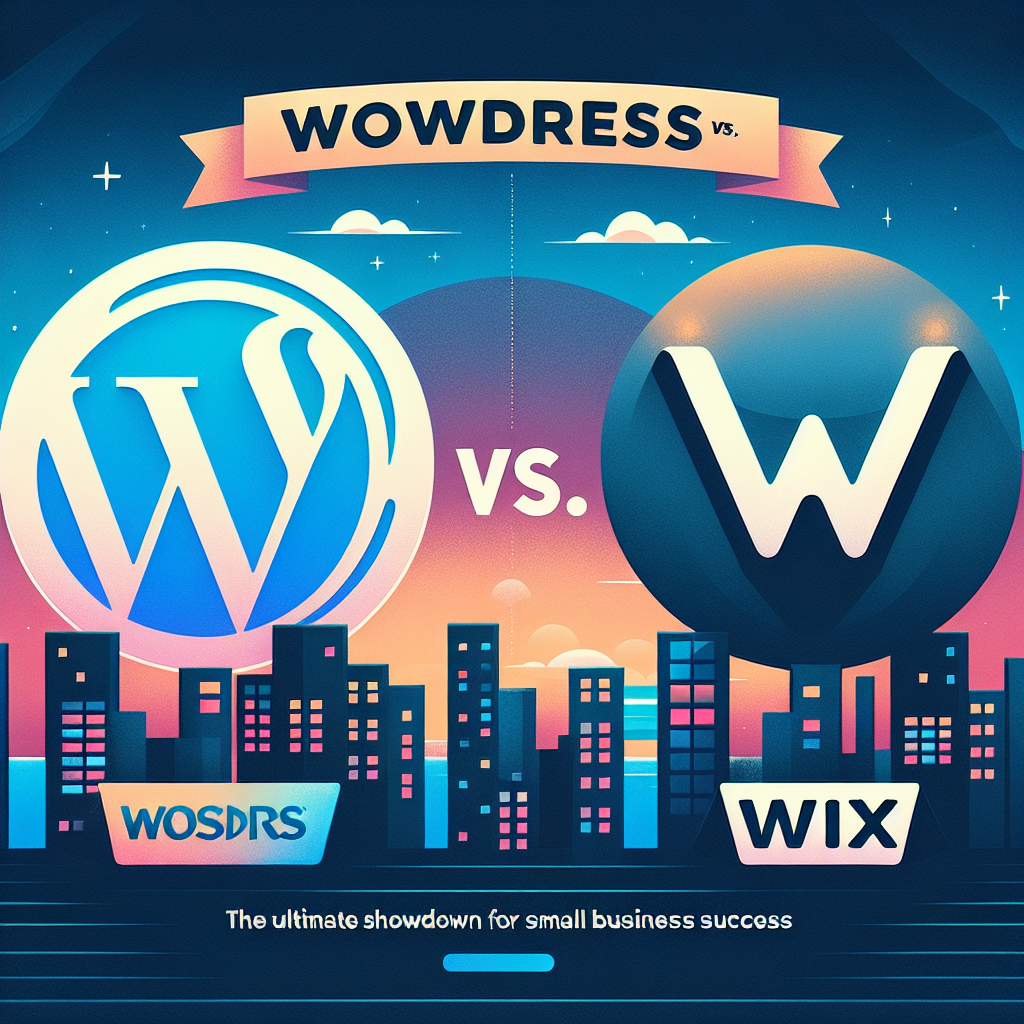In the digital age, having a professional website is critical for small businesses. Two popular platforms that often come up in discussions are WordPress and Wix. Each has its unique strengths and weaknesses, which can significantly impact a small business’s online presence. This article provides a comprehensive comparison to help you decide which platform is best suited for your needs.
Introduction to WordPress and Wix
What is WordPress?
WordPress is an open-source content management system (CMS) that powers over 40% of all websites on the internet. Known for its flexibility and extensive customization options, WordPress allows users to create anything from personal blogs to complex websites and e-commerce stores. It offers thousands of themes and plugins to extend functionality.
What is Wix?
Wix is a website builder that provides a user-friendly drag-and-drop interface for creating websites. Designed primarily for small businesses and entrepreneurs, Wix offers a range of templates and an intuitive experience, making it easy for users with limited technical skills to build and manage their sites.
Ease of Use
WordPress
While WordPress allows for extensive customization, its learning curve can be steep for beginners. Although many hosting providers offer one-click installations, users may need to familiarize themselves with the dashboard, themes, and plugins. Coders and web developers find WordPress highly adaptable, but those lacking technical skills may take time to learn its features.
Wix
Wix excels in ease of use with its drag-and-drop interface. Users can create and modify their websites visually without coding knowledge. The templates are well-designed and mobile-responsive, allowing small business owners to get their sites up and running quickly without delving into technical details.
Cost Comparison
WordPress Costs
WordPress itself is free to use, but associated expenses can arise. Small business owners need to factor in costs for domain registration, web hosting (which can range from $5 to $30 per month depending on traffic and features), premium themes (ranging from $30 to several hundred dollars), and plugins (ranging from free to $100 or more). For e-commerce functions, plugins like WooCommerce may also incur costs.
Wix Costs
Wix operates on a subscription model with various pricing tiers. Plans range from basic (around $14/month) to VIP packages (up to $39/month) that include more features and storage. Although everything is included within Wix’s ecosystem, users may ultimately find it more expensive as they scale and require additional features.
Design and Customization Options
WordPress Customization
WordPress shines with its customization capabilities. Users can choose from thousands of themes (both free and paid) and plugins, enabling nearly all aspects of a website to be tailored to specific business needs. Developers can also adjust PHP code directly for even more granular control. However, advanced customization often requires coding knowledge.
Wix Customization
Wix provides a range of professionally designed templates that are customizable through its visual editor. While customization is straightforward, it is somewhat limited in comparison to WordPress. Users cannot access the underlying code to make changes, which can restrict more advanced or unique business requirements.
Performance and SEO
WordPress Performance
WordPress generally offers better performance for larger websites. With the right hosting, caching solutions, and optimization plugins, WordPress sites can handle higher traffic more efficiently. Additionally, WordPress is well-optimized for SEO, allowing for the installation of various SEO plugins to help small businesses rank higher in search engines.
Wix Performance
Wix also provides adequate performance for small to medium-sized businesses. Its built-in SEO tools are user-friendly, but they may not be as robust or flexible as the options available through WordPress plugins. As businesses grow and attract more visitors, Wix’s performance may lag compared to a well-optimized WordPress site.
E-Commerce Capabilities
WordPress E-Commerce
WordPress is highly regarded for e-commerce, especially with the WooCommerce plugin. This allows small businesses to create extensive online stores with various payment options, inventory management, and custom features. Advanced customization can also be applied to enhance the e-commerce experience.
Wix E-Commerce
Wix also offers e-commerce capabilities with its Business plans. However, while it is efficient for small online stores, larger businesses might find its limitations in terms of scalability and customization compared to WooCommerce on WordPress.
Customer Support
WordPress Support
As an open-source platform, WordPress relies on community support and extensive documentation. Users can find forums, tutorials, and articles, but personalized support can be hit or miss unless you opt for managed hosting services where support is enhanced.
Wix Support
Wix offers robust customer support, including a help center, live chat, and email support. Since it’s a proprietary platform, users typically benefit from more structured and immediate support compared to WordPress.
Conclusion
Choosing between WordPress and Wix ultimately comes down to your specific business needs, technical expertise, and budget considerations.
WordPress is ideal for users seeking limitless customization, robust e-commerce capabilities, and scalability. However, it requires a steeper learning curve and ongoing maintenance.
Wix caters to those looking for a straightforward, user-friendly approach to building and managing a website. However, those who anticipate rapid growth may find it less scalable.
Both platforms have proven their worth for small business success. Evaluating your unique requirements will ensure that you select the best option for your online presence, helping you thrive in a competitive digital landscape.
Are you interested in learning more about web development possibilities? Speaking of content management systems, you might want to check out the history and features of WordPress, a popular platform known for its extensive customisation capabilities. Additionally, if you’re exploring user-friendly website builders, the Wix platform might catch your interest as an intuitive tool for small business owners. For a deeper understanding of how these platforms fit into the wider web development landscape, take a look at the evolution of web development over the years. Understanding these aspects will enrich your perspective on choosing the right platform for your business’s digital presence.





